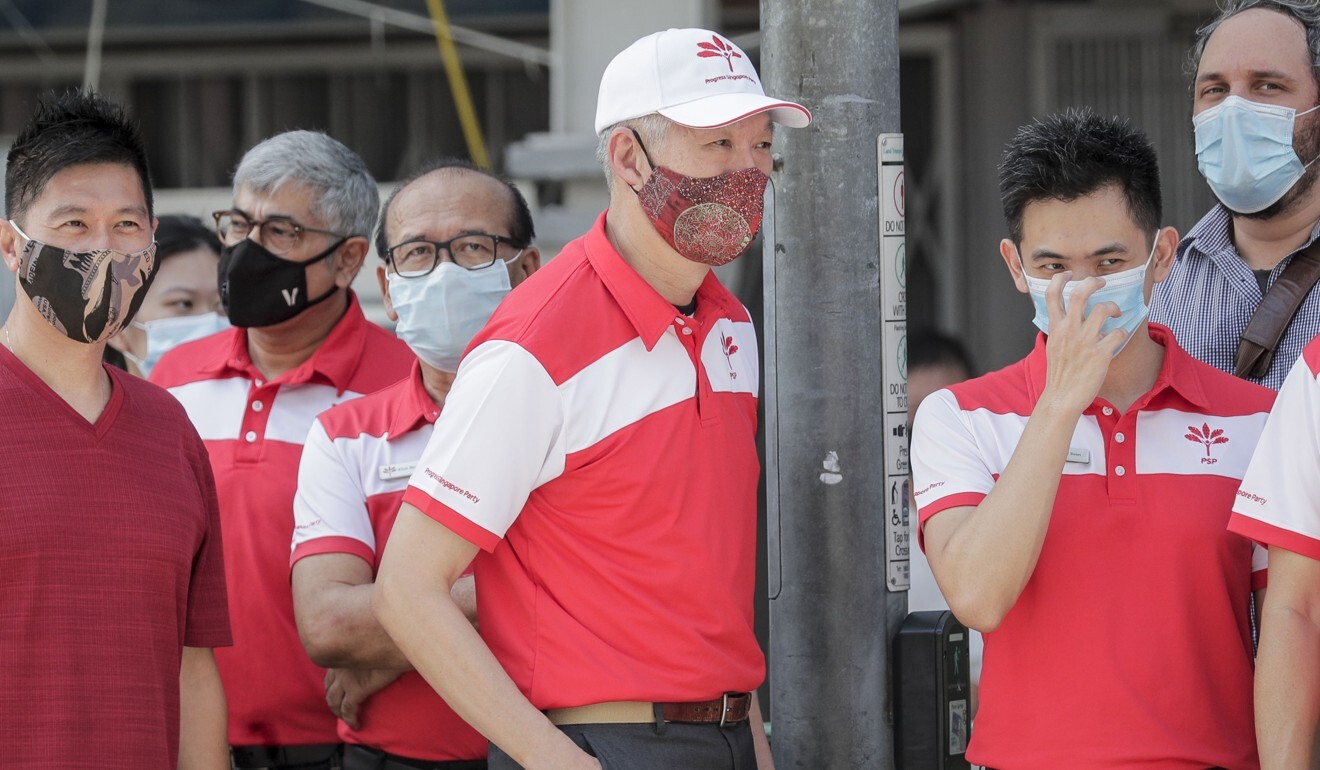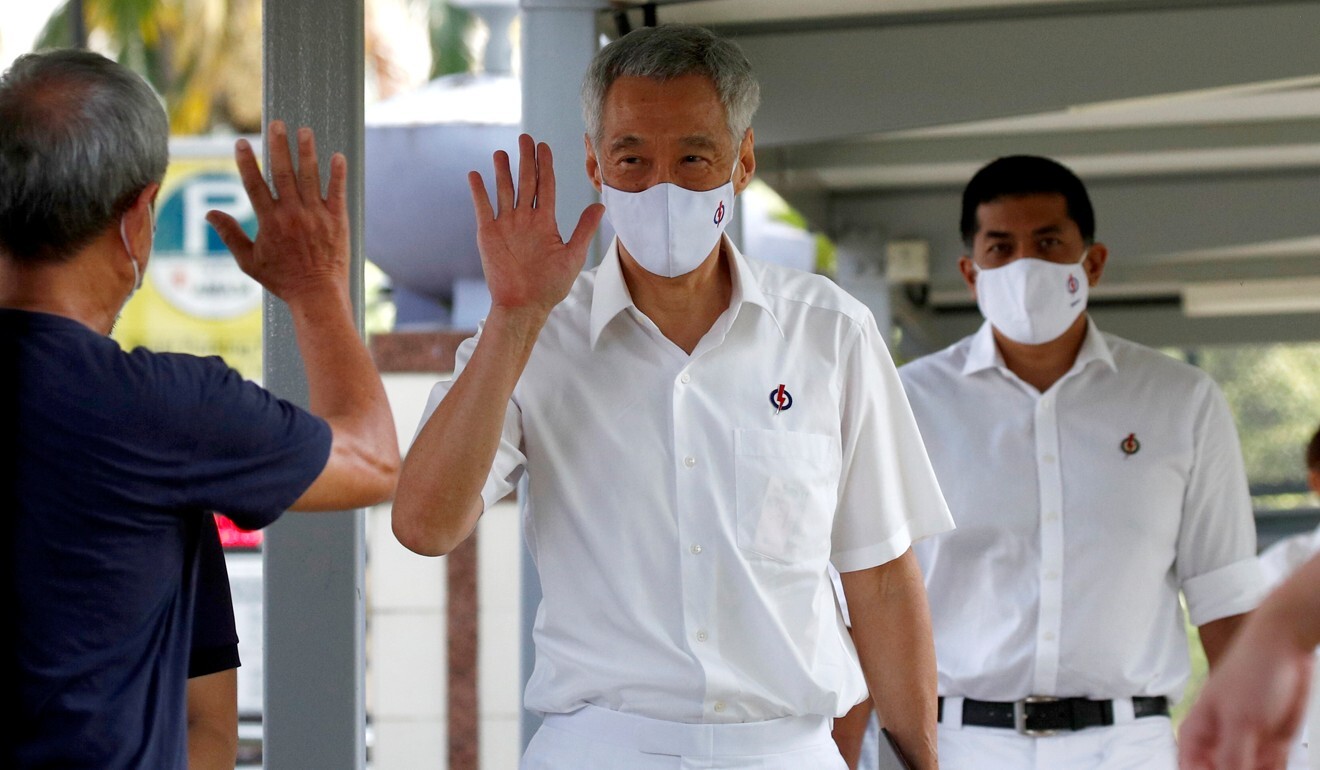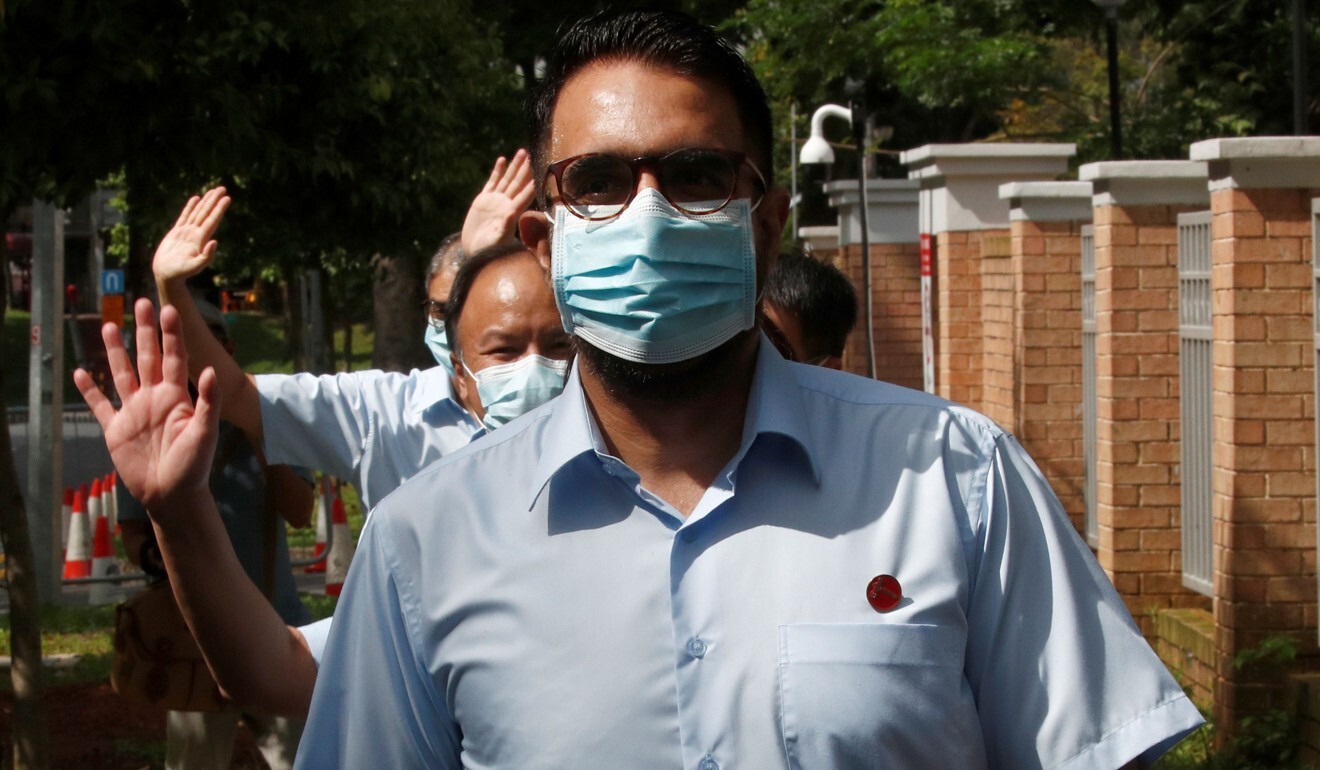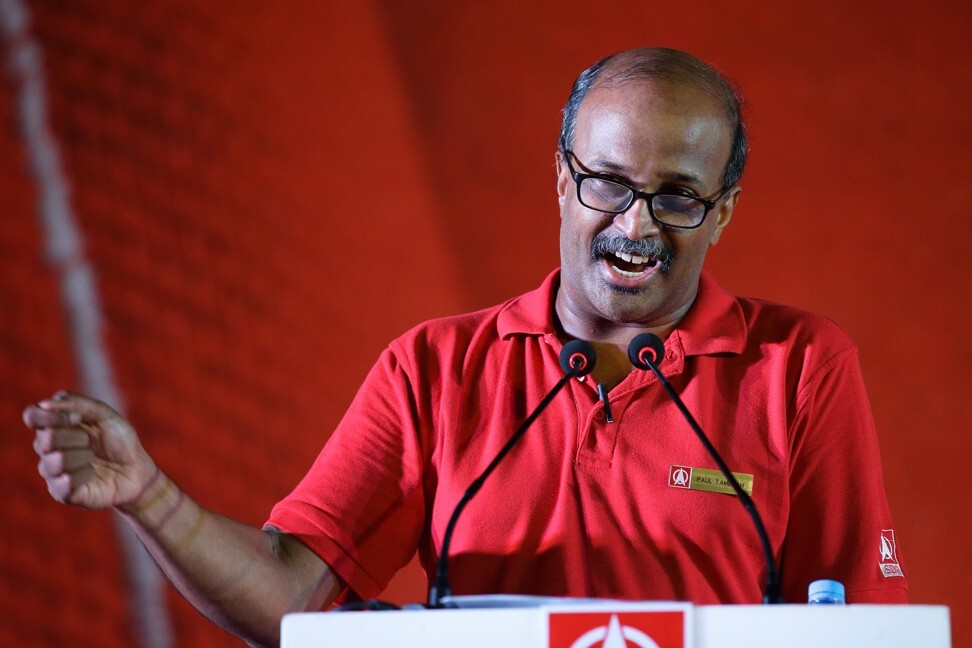
‘Singapore does not need another Lee’, says PM’s estranged brother as PAP pulls a surprise ahead of July 10 election
- Deputy Prime Minister Heng Swee Keat makes an eleventh-hour move on Nomination Day to contest East Coast GRC against the Workers’ Party
- Lee Hsien Yang, the Prime Minister’s brother who joined the Progress Singapore Party, will not contest the polls
But despite an initial buzz of excitement – with Lee Hsien Yang seen at a coffee shop near a nomination centre for the district of Tanjong Pagar, the constituency once helmed by the siblings’ late father Lee Kuan Yew – he did not enter the centre to file for candidacy by the noon deadline.
“I have chosen not to stand for political office because I believe Singapore does not need another Lee,” the 62-year-old former corporate figure wrote on Facebook, after the close of nominations.
“I do not seek power, prestige or financial rewards of political office. I hope to be a catalyst for change,” Lee Hsien Yang said on June 30.
Asked by reporters about his brother’s foray into politics, Prime Minister Lee said his younger sibling was “entitled to speak like anybody else”.
“Nowadays with social media, you can have five, six million voices on the internet. The public will assess which ones are worth listening to, which ones make sense,” the 68-year-old leader said.

The Nomination Day twists came from elsewhere.
The East Coast contest had been expected to be one of the more hotly contested races in the snap polls with the Workers’ Party – the sole opposition group in the last parliament – contesting there.
In another unexpected move, the Singapore Democratic Party’s (SDP) Dr Paul Tambyah is standing in the single-seat ward of Bukit Panjang.
Despite the widely contested poll, the consensus view remains that Prime Minister Lee’s PAP is certain to retain power with relative comfort.
PAP leaders have in recent days dismissed assertions by the Workers’ Party that the opposition risked a “wipeout” in the election. In a press conference on Tuesday afternoon, Lee said he believed the ruling party faced a tough fight from opposition parties that are aiming to gain more than a toehold in parliament.
The Workers’ Party is contesting 21 seats while the Progress Singapore Party helmed by former PAP backbench MP Tan Cheng Bock is fielding 24 candidates.
"The opposition are well organised and prepared, and will not roll over... The PAP will have to fight for every vote and win every heart,” Lee was quoted as saying by The Straits Times.

Touching on how the PAP decided on its slates for the various group and single seats, Lee said the party made “an assessment of where our most important contests may be, and where we can best re-deploy our chess pieces.”
This, the prime minister said, ensured that the PAP fielded candidates who fit “the needs of that constituency, and would be able to give good service to its residents and put up a good fight in the campaign”.
In 2015, the PAP staged a particularly crushing victory as it enjoyed a bounce in public support during the country’s 50th anniversary of independence.
That result, which saw the ruling party win 69.9 per cent of the national vote, also came months after the death of Lee Kuan Yew, the country’s first prime minister and co-founder of the PAP.

The Workers’ Party chief Pritam Singh meanwhile said the party had fielded “people who are committed and can go the whole stretch” as it faced an uphill battle against the PAP.
He said the ruling party’s decision to field Heng, the prime minister-in-waiting, in East Coast GRC signalled that it took the Workers’ Party’s challenge there seriously.
“I would say we take their challenge equally seriously and that’s why we have put a strong slate of candidates in East Coast,” Singh said.
In the July 10 election, candidates will be vying for 14 single-seat wards and 17 GRCs, which comprise four to five seats each and help ensure the legislature has a multiracial mix.
Candidates who filed their papers on Tuesday pledged, among other things, not to accept donations from foreigners.
Singapore has strict rules on election expenses, with spending capped at S$4 (US$2.80) per voter in single-seat precincts. In GRCs, the spending cap for each candidate is S$4 per voter divided by the number of members in the contesting team.
Parties including the PAP have in recent weeks conducted question and answer sessions with residents on Facebook Live, Zoom and Reddit.
To make up for the lack of physical rallies, the Elections Department is granting candidates more airtime for broadcasts on national free-to-air TV channels.
Candidates can still meet residents on the ground through walkabouts and house visits, as they have been doing with intensity in recent days. Such campaigning must adhere to prevailing guidelines by the Health Ministry, which currently restrict public gathering to groups of no more than five.



